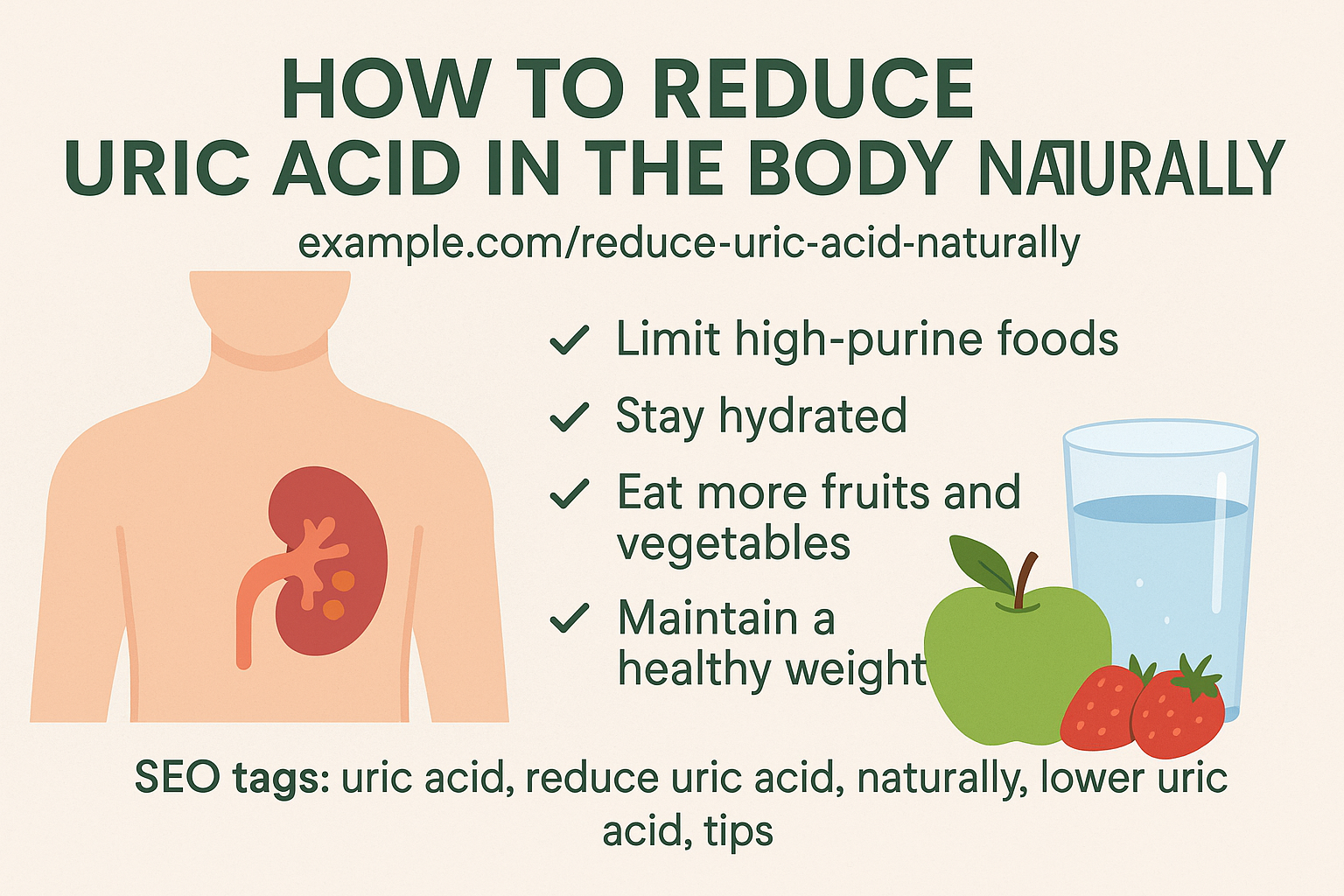
🧬 What is Uric Acid and Why Does it Matter?
Uric acid is a chemical produced when your body breaks down purines, which are found in certain foods and drinks. Normally, uric acid dissolves in your blood, passes through your kidneys, and is eliminated in urine. However, when your body produces too much uric acid or doesn’t eliminate enough, it can build up in the blood and form crystals—leading to painful conditions like gout or kidney stones.
Fortunately, you can manage this naturally with mindful dietary and lifestyle changes.
🌿 7 Natural Ways to Reduce Uric Acid Levels
1. Stay Hydrated – Drink Plenty of Water
Water helps flush excess uric acid from your body. Try to drink 8–10 glasses a day. You can also include herbal teas, coconut water, or lemon water for added benefit.
2. Avoid High-Purine Foods
Certain foods break down into purines. These should be limited or avoided:
- Red meat and organ meats
- Seafood like anchovies, sardines, and shellfish
- Beer and alcohol
- Sugary drinks and processed snacks
3. Eat More Fruits and Vegetables
Fresh fruits and veggies help balance body pH and improve kidney function. Best picks include:
- Cherries
- Apples
- Cucumber
- Leafy greens
- Carrots and beets
4. Maintain a Healthy Weight
Being overweight puts extra pressure on your kidneys. Even small amounts of weight loss can improve uric acid balance and reduce the risk of gout attacks.
5. Cut Down on Sugar and Alcohol
Fructose in sugary drinks and alcohol—especially beer—are major culprits. Switch to healthier alternatives like:
- Buttermilk
- Coconut water
- Lemon and mint water
6. Boost Vitamin C Intake
Vitamin C helps reduce uric acid levels. Include foods like:
- Oranges
- Amla (Indian Gooseberry)
- Lemons
- Guava
7. Add Fiber-Rich Foods
Fiber helps absorb uric acid and eliminate it. Choose:
- Whole grains (brown rice, oats)
- Lentils and beans
- Flaxseeds and chia seeds
✅ Final Words:
Uric acid doesn’t have to control your life. With a few consistent changes in diet, hydration, and exercise, you can manage your levels naturally and live pain-free. Remember, small steps lead to big results!
If your symptoms persist or worsen, seek advice from a healthcare professional.
⚠️ Disclaimer:
The content provided in this blog post is for informational and educational purposes only. It is not intended as medical advice or a substitute for professional healthcare consultation, diagnosis, or treatment. Always consult a qualified healthcare provider before making changes to your diet or lifestyle, especially if you have underlying health conditions.


